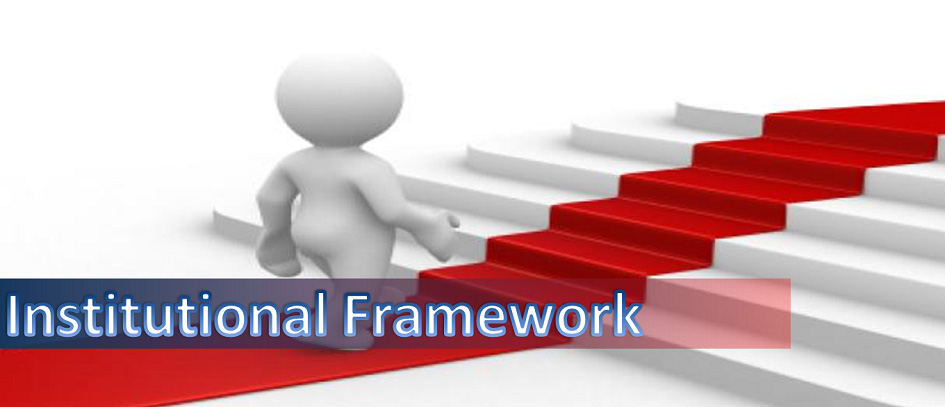
Our approach about institutional framework:
We emphasize the importance of a strengthened institutional framework for sustainable development which responds coherently and effectively to current and future challenges and efficiently bridges gaps in the implementation of the sustainable development agenda. The institutional framework for sustainable development should integrate the three dimensions of sustainable development in a balanced manner and enhance implementation by, inter alia, strengthening coherence, coordination, avoiding duplication of efforts and reviewing progress in implementing sustainable development. We also reaffirm that the framework should be inclusive, transparent and effective and that it should find common solutions related to global challenges to sustainable development.
Importance of institutional framework:
The Institutional Framework is an analytical process and set of tools used to support objectives-oriented project planning and management. It provides a set of interlocking concepts which are used as part of an iterative process to aid structured and systematic analysis of identified project.

The Institutional Framework is a way of describing a project in a logical way so that it is:
- Well designed
- Described objectively
- Can be evaluated
- Clearly structured
The Institutional Framework should be thought of as an ‘aid to thinking’. It allows information to be analysed and organised in a structured way, so that important questions can be asked, weaknesses identiied and decision makers can make informed decisions based on their improved understanding of the project rationale, its intended objectives and the means by which objectives will be achieved.
The Institutional Framework helps :
– Developing the objective, including the identiication of stakeholders’ needs and the deinition of related objectives.
– Establish a causal link between inputs, activities, results, purpose and overall need of projective goals.
– Deine the assumptions on which the project logic builds.
– Identify the potential risks for achieving objectives and purpose.
– Establish a system for monitoring and evaluating project performance.
– Establish a communication and learning process among the stakeholders, i.e. clients / beneiciaries, planners, decision-makers and implementers.
Advantages of Institutional Framework:
- It ensures that fundamental questions are asked and weaknesses are analysed, in order to provide decision makers with better and more relevant informa
- It guides systematic and logical analysis of the inter-related key elements which constitute a well-designed project.
- It improves planning by highlighting linkages between project elements and external fact
- It provides a better basis for systematic monitoring and analysis of the efects of pr
- It facilitates common understanding and better communication between decision makers, managers and other parties involved in the project.
- Management and administration benefit from standardized procedures for collecting and assessing
- The use of Institutional Framework and systematic monitoring ensures continuity of approach when original project staf is replaced.
